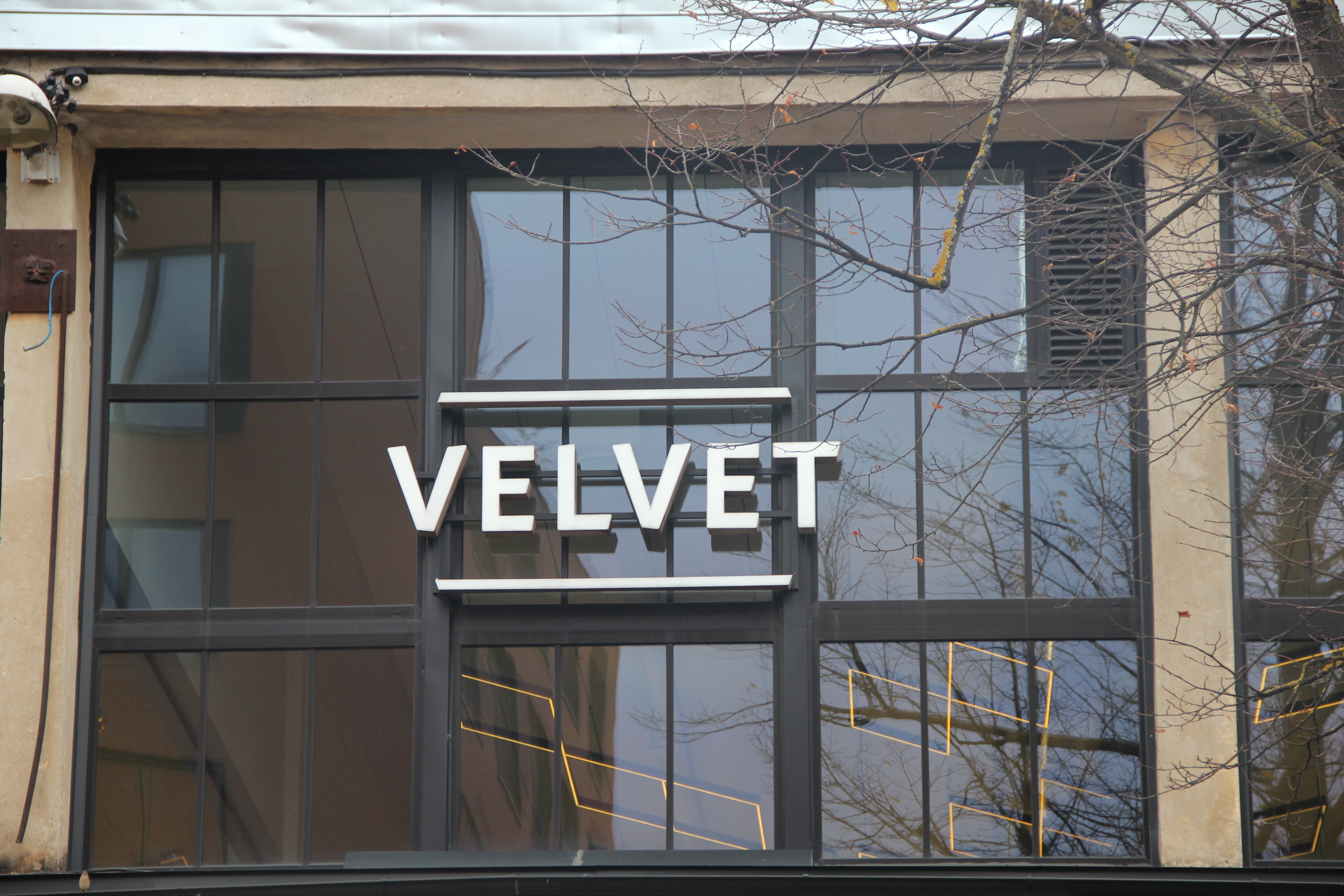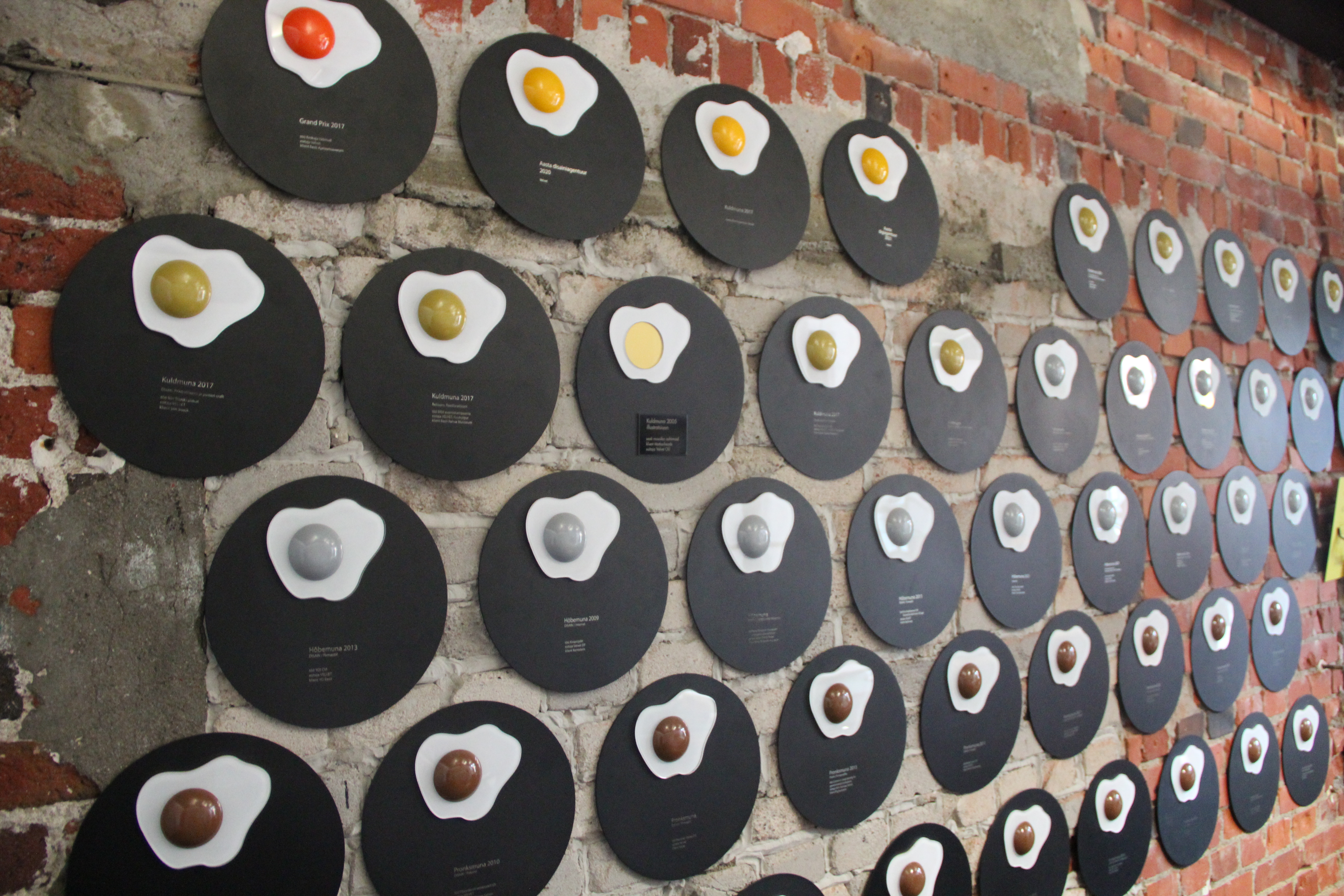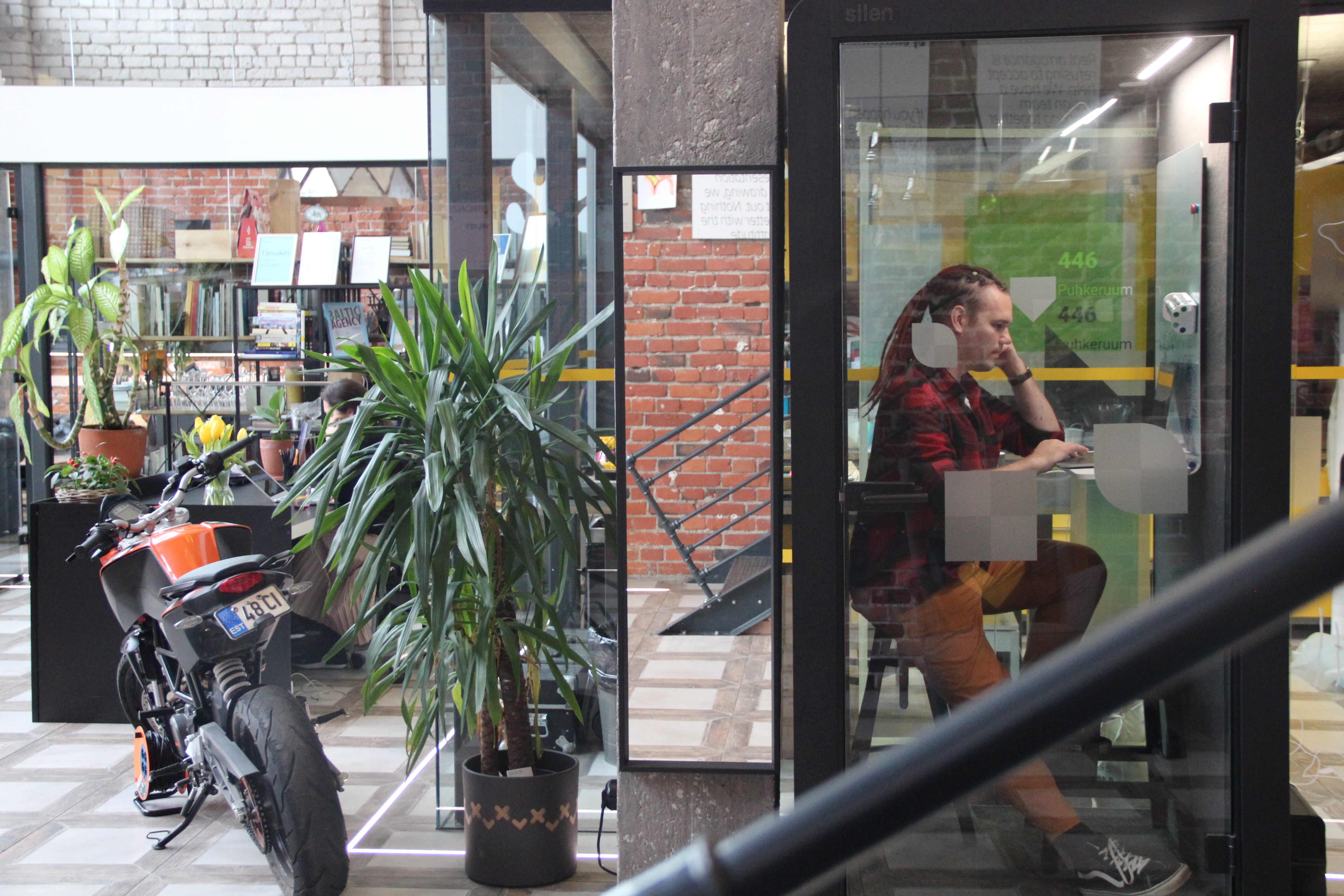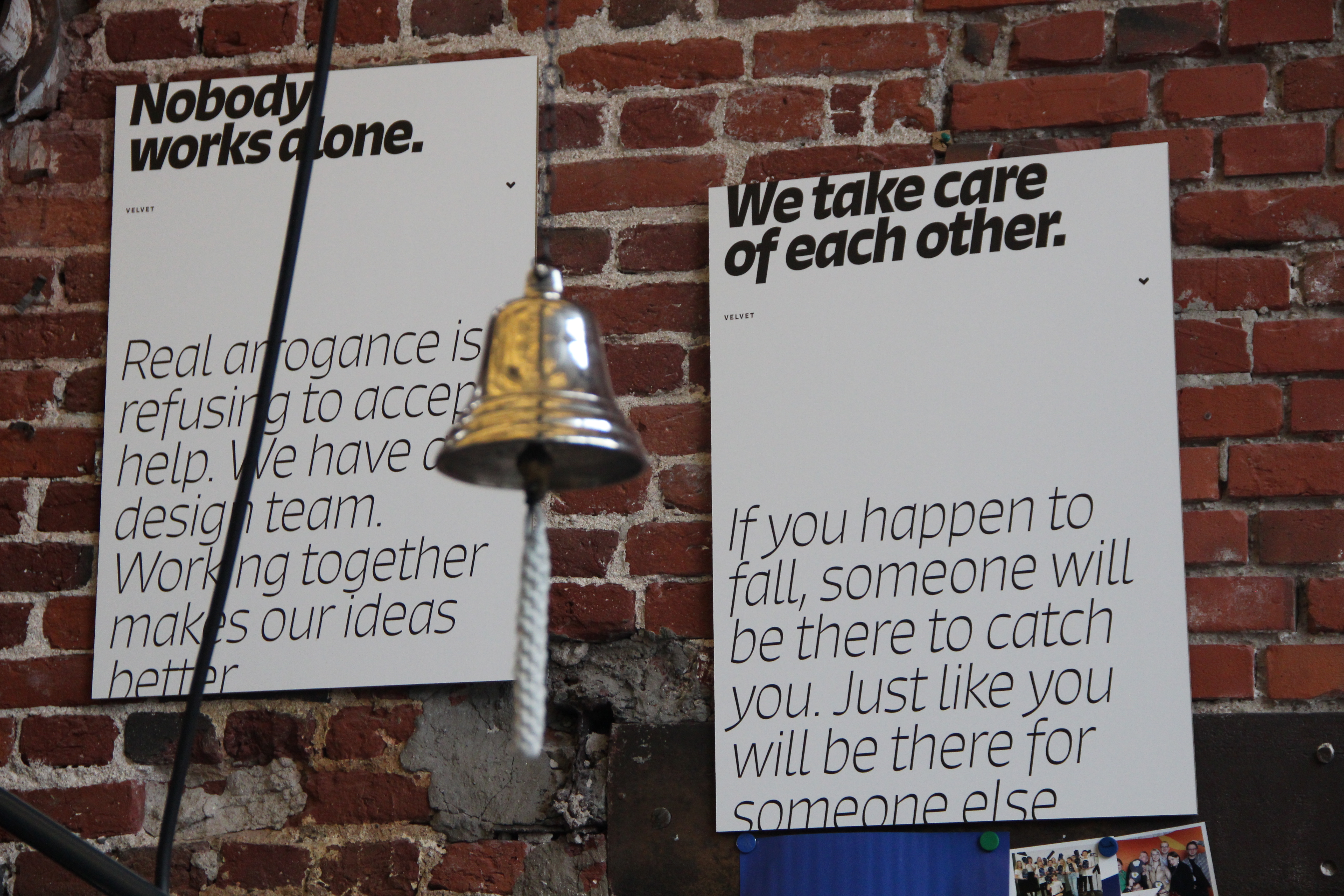Today we are meeting with an alumnus, who completed his studies in Tallinn Univeristy Digital Learning Games Indrek Kaine. As he mentions himself, studying in the School of Digital Technologies changed his mindset! Web developer of strategic design agency Velvet welcomed us in his office, showed dozens of "Kuldmuna" (Prizes from the biggest creative festival in Estonia The Golden Egg Awards ) that company got through the years and talked about his interesting journey from a filmmaker to game and web developer.
.png)
Indrek Kaine. Photo: Tallinn University School of Digital Technologies.
How did you start your studies in Tallinn University’s School of Digital Technologies?
In the beginning I started my studies in Tallinn University in the Baltic Film and Media School where I completed my bachelor’s degree in film and arts. After graduation I saw that there was a new master’s program offered by the School of Digital Technologies called Digital Learning Games. As computer games have always been a big part of my life, the program immediately caught my attention. I had this exciting idea of mixing my two educations together: film and arts and digital learning games. So that at one point I could create a real game by using my storytelling skills from BFM and basics of game development from DLG.
That is a very exciting idea! Have you worked on some interesting projects during your studies?
The most interesting project was my thesis. I developed a game about drawing topographic maps, where I had a prototype and basic features that every game should have. In the thesis I described how I developed the game, which problems I faced and how I solved them. Later I pitched the game in Regio OÜ, a company that specializes in producing informative and complex maps in Estonia. I was pleased that even they thought that there is a great idea behind this project. So I am still very interested in bringing this project into life!
.png)
Picture: Screenshot from Indrek's topographic maps' game
Good luck! Now you are working in strategic design agency Velvet. Please tell what exactly you do there.
I am a full stack developer in Velvet. I am making sure the data on the web is presented in the right way.
Velvet calls himself number 1 “Empathy first” design agency. What does this mean?
Exactly! We do say that we are the first company in the world that is doing empathy first design. Whenever we have a client that wants to get some design, branding, website then our purpose is to find out what are his actual needs and desires. Because there are many potential clients who either don’t know exactly what they want, or they come to us with a strong vision which actually does not support their company needs. So our goal is to understand the core of the problem, then solve it. This is the empathy approach. Only when we are on the same page with the client then we start to collaborate.

Velvet office. Photo: Tallinn University School of Digital Technologies.
I see dozens of “Kuldmuna” (“Golden egg”) prizes on the wall that Velvet got. Has the company got other awards as well?
As you may know The Golden Egg Awards is the biggest creative festival in Estonia that acknowledges the work of the most exciting agencies and clients. The best of them get rewarded with the awards: Golden Egg, Silver Egg and Bronze Egg. So yes, as you see we have a lot of “Kuldmuna” prizes, but we won in other awards as well. For example there was one project that recently got the silver award at the Estonian Design Awards 2022 and also European Design Awards 2022. We made a website for a Danish company called “Fiberpartner”. The award was given to us because we worked out a formula which helped to compress a huge amount of information in such a way, so that users will enjoy being on the website and will not be “attacked” with too much text. First, I thought that as a developer I didn't have a big part in this, but my team really showed me that a developer who is actually behind the scenes has also a big role in this achievement.

The Golden Egg Awards Photo: Tallinn University School of Digital Technologies.
Congratulations! What skills did you gain while studying in the School of Digital Technologies?
I think the most valuable knowledge that I got was the idea of how to do research, find information and later put it together, so I can find new ideas on how to approach the problem. I went to school to get practical skills, but got more of a theory, which actually changed my mindset. This is the best thing that happened to me! I got what I didn't expect, but it turned out to be what I really needed. I understood that first of all you have to make sure that the base of the product (web, app) will not suffer because of the cool design or too restricting UX requirements. The foundation is still one of the most important things on which everything else is built.
Also I remember that we had a course called Human Computer Interaction telling about User Experience design. Things that I learnt during that course were really important for web design. This is a praise to Tallinn University and School of Digital Technologies that I am still using the idea of how to make UX more pleasant. Thank you Martin, Vladimir, Tobias and David.
What does gamification mean for you?
Gamification is a tool for me that helps make things more engaging and fun. But as a user I see some problems in gamification as well. For example, when I am browsing Facebook I very often see click catchers: “Find out if you are one of those…”, “ Answer questions and see which celebrity you are…” and so on. But this is a manipulation. It makes you believe that with clicking and participating, you virtually become part of something.

What features should have a good digital learning game?
It for sure has to have some educational content in it. But also it should reward the player. It can be feedback, the result of your game journey or statistics. Something that would show your progress.
What problems do you see in the digital world nowadays and how can we solve them?
Nowadays accessibility seems to be a great issue. By the law all public websites in Estonia have to be accessible for people with disabilities. Here we are talking about the text on the website, contrast, focus indicators, so that people can navigate through the website by using a keyboard, screen readers. I had a seminar recently where I got information about how many Estonian websites are accessible for people with disabilities. Basically, the result was very poor.

What do you think, which educational background a person should have so he can join this master program?
I had coursemates who didn't have much experience with computer games and they still liked studying here. I think the most important thing is desire!
What would you advise to the new students of the Digital Learning Games program?
Whatever you are expecting, just let go of it and trust the process. Accept information you get even if it does not answer your expectations yet, you will see results later.
Source: Tallinn University
Find YOUR study programme from our programme's page.
Read more blog posts:
